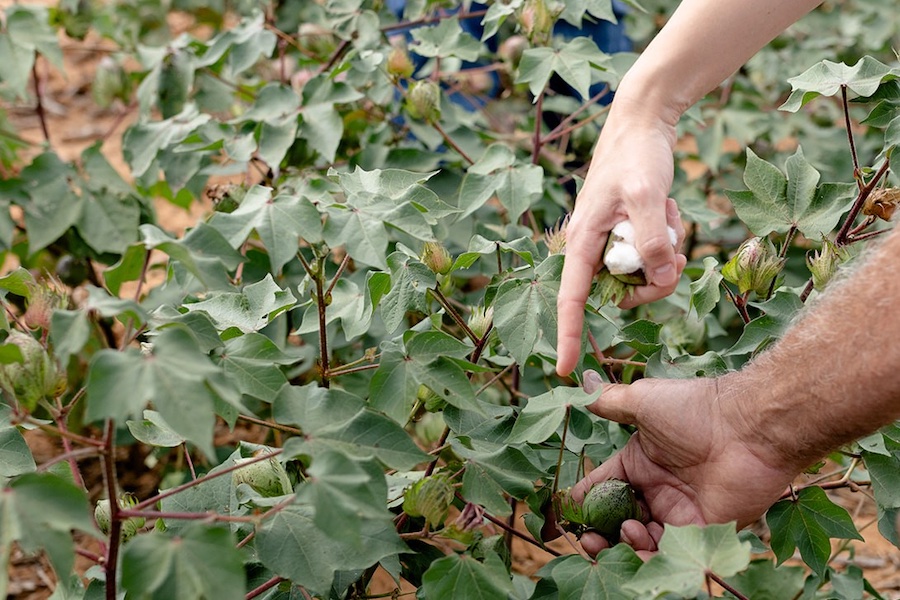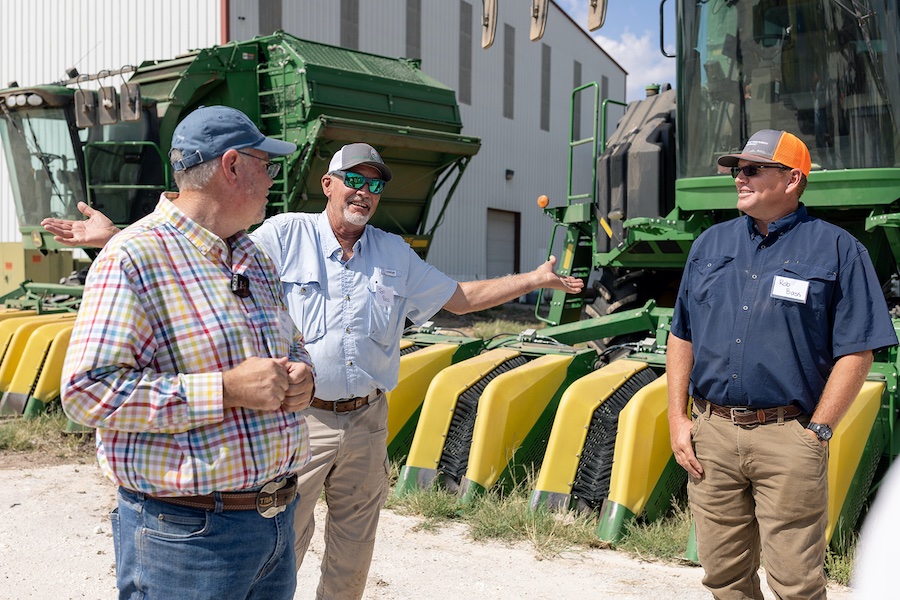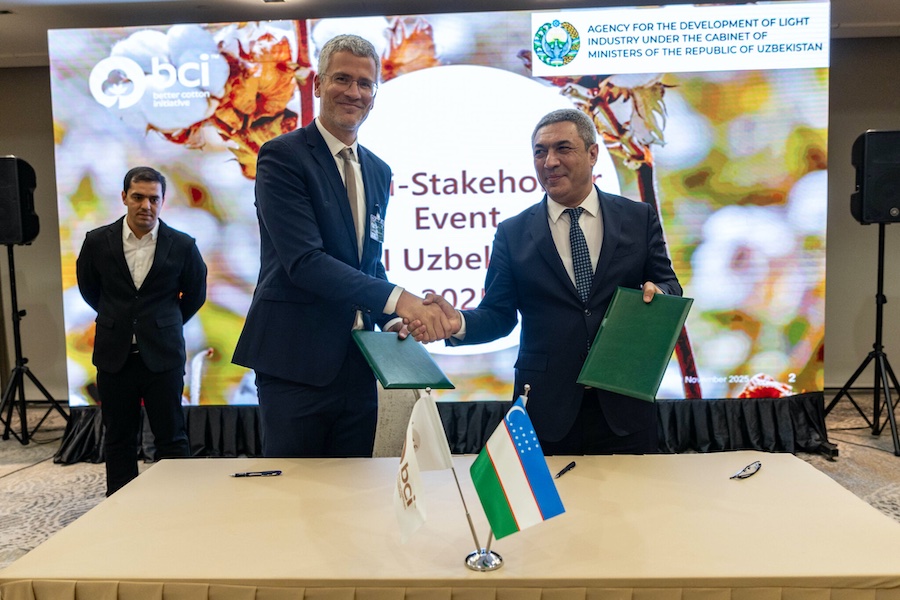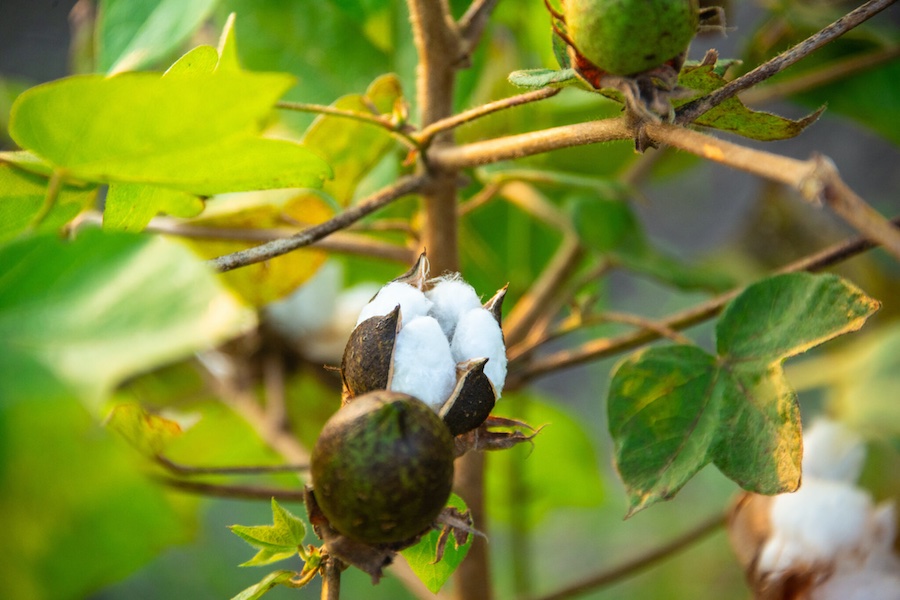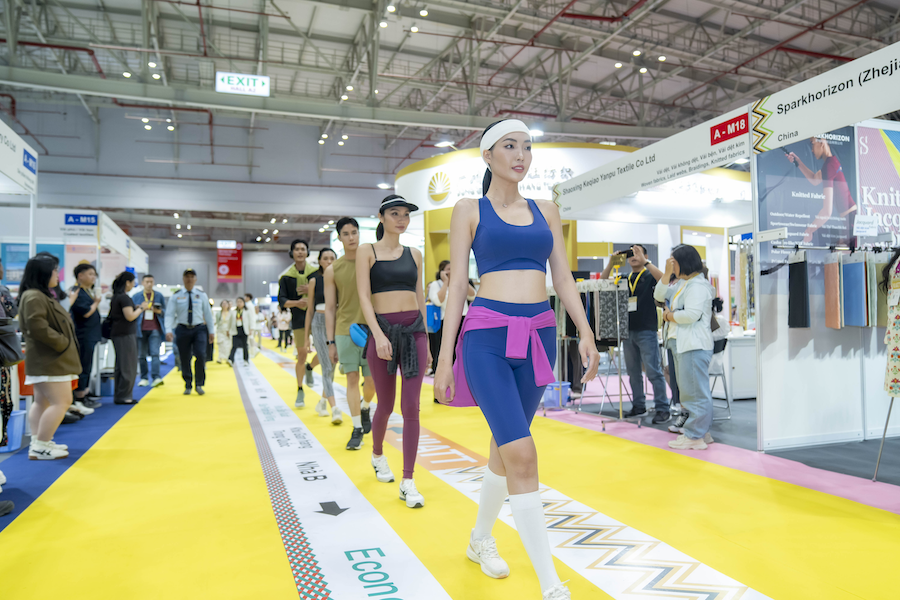#Natural Fibers
Better Cotton Conference marks new phase
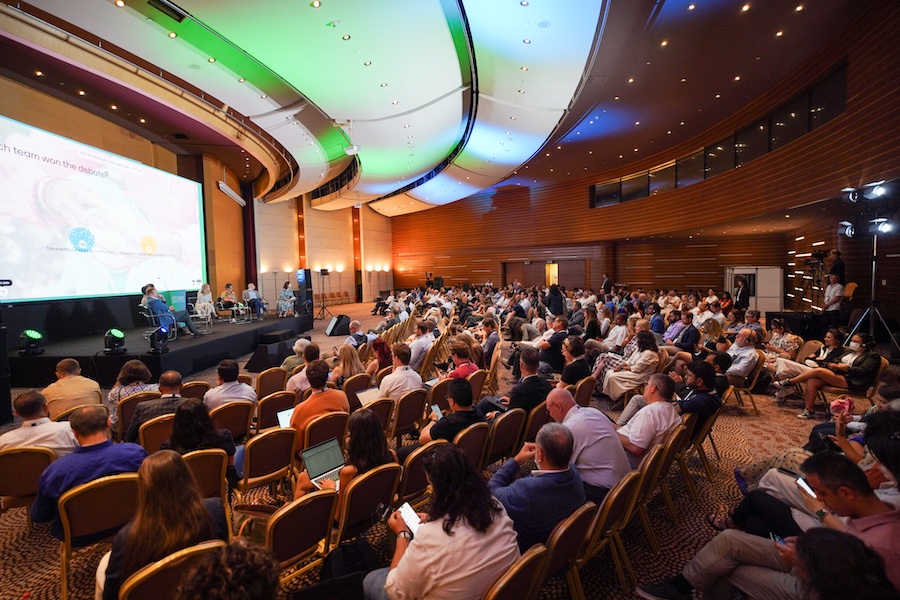
Held in ?zmir, Türkiye, on 18 and 19 of June, the event welcomed more than 370 attendees from over 20 countries, sparking conversation and debate on topics ranging from gender equality and climate finance to traceability and cross-commodity collaboration.
Better Cotton’s outgoing CEO, Alan McClay, bid farewell to the organisation’s vast network after a decade at the helm. “We need to take our place more loudly and explicitly and authoritatively in the broader community,” he said. “For too many years we’ve been doing our own thing almost under the radar to the extent that some legislation now gets passed without even knowing the constraints and the opportunities, the conditions and the impact that this can have on several hundreds of millions of farmers around the world.”
McClay welcomed his successor, Nick Weatherill, a former Executive Director of the International Cocoa Initiative, who joined him on stage. “You are leaving a very powerful legacy, and I am inheriting a very precious lifeforce. You have my word that I will look after it,” Weatherill told his predecessor.
From Protecting to Restoring Landscapes
At a session focused on regenerative practices, Better Cotton announced that it will become a regenerative standard within the next year. “It is increasingly clear that we need approaches that don’t simply mitigate or reduce harm, but that actively restore the environment,” said Better Cotton’s Senior Director of Demand and Engagement, Eva Benavidez Clayton. “While Better Cotton’s field level standard is already recognised to cover many of the core tenets of regenerative agriculture, this move will further ensure that farmers who meet our standard are adopting the most commonly agreed regenerative practices.”
Better Cotton also presented a snapshot of its first ever United States Impact Report, which reflects on the past decade (2014-2024) of Better Cotton’s progress and presence in the country. The report introduces the US programme and its partners, provides a general picture of large-scale cotton farming in the US, and paints a more complete picture of the US cotton landscape.
Introducing the report, Benavidez Clayton said: “Better Cotton is a global standard, but we firmly believe in local application. [The report] does have key data on acreage, production, practice adoption, water, and input usage. Since storytelling is so important, and making things real for people, there are also profiles on farmers and projects that really bring the work to life.”
Farmers Front and Centre
The 2025 Better Cotton Conference placed cotton farmers and field-level organisations front and centre to capture the event’s theme: ‘It Starts with Farmers’.
Cotton farmers and field-level partners from different parts of the world participated at the conference, representing countries such as Brazil, Côte d’Ivoire, India, Pakistan, the US, and Uzbekistan.
Alan McClay said: “While it takes all of us to create lasting change, real progress must start with farmers. That is increasingly the framing that will drive all of Better Cotton’s work moving forward.”
One of the event’s sessions asked a provocative question, as part of a speculative debate, with arguments and counterarguments: “Can Traceability Prove Beneficial to Farmers?” With Better Cotton representation on both sides, the discussion highlighted the many opportunities and challenges that surround traceability as it relates to farming communities, and explored ways in which solutions involving farmers can be deployed. The audience cast their votes, with a verdict in favour of traceability being capable of benefitting farmers.



